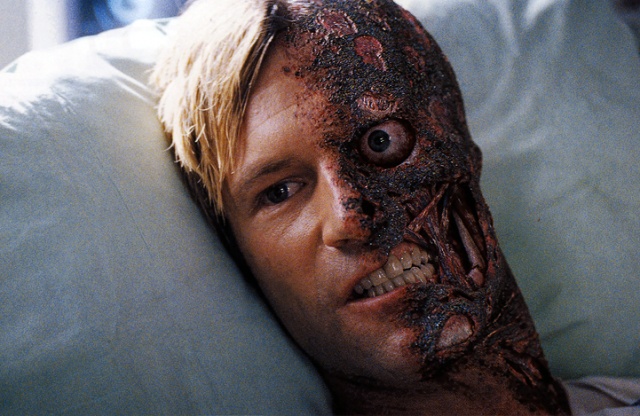Select from one of the readings from week 1 or 2 and briefly describe two points that you have taken from that reading. Points that excite you, something that was completely new to you.
There were some great takeaways from the Slogans for the Screenwriter’s Wall reading, and two of which are:
- The importance of props
I hadn’t realise the importance of props and the role of the director prior to this reading. For a director to get an actor to do what he wants, he can manipulate their actions by inserting certain props. This ability to conceive and predict an actor’s actions and behaviour would require a deep understanding of the actor himself, which is possibly why directors enjoy working with the same actors over and over (e.g. Tim Burton and Johnny Depp, Wong Kar-Wai and Tony Leung). I’d always assumed the onus of “good acting” mostly lay with the actors themselves, but the director appears to have a more important role than I’d previously imagined.
In this scene from Moonrise Kingdom, the Scout Master (Edward Norton) conducts the morning inspection and holds a cigarette throughout the process. I thought it a very useful prop because he filled in the periods of silence with smoking and used it as a pointer when directing the scouts. It probably also served as a distinct separation between him and his boy scouts; he appeared more “adult-ish” – man vs. boy.
I find a good way to determine the usefulness of a prop is to imagine the same scene without the said prop – which would be Norton’s cigarette in this case. He would have appeared less contemplative when reading the papers and it would have made those periods of silence less entertaining.
- Character progression
What would a story be without its characters, right? Zilch. In the first lecture, Jasmine said bad characters are boring characters. We watch films for drama, so obviously, we’d like to see that happen. We love to witness the journey characters take; we love a revelation, a transformation. We need to see a character make progress, whether it’d be good or bad. Often times it is the former, but a good example of a “bad” progress is the character Harvey Dent from Batman: The Dark Knight.
In the beginning, Harvey was an upright district attorney who campaigned for justice – a White Knight, they say. But he and his girlfriend Rachel end up at the Joker’s mercy, Batman chooses to save Harvey instead of Rachel and she dies. Harvey survives, but is disfigured and is now known as Two-Face. He is overcome with grief and sets out to enact revenge, killing several in the process. He even holds Gordon’s family hostage and threatens to kill his son. Batman, however, comes to the rescue and kills Two-Face.
So there we have it: Harvey’s 360° transformation.
One of the story ideas I came up with was a 40 year-old nurse, Liz, who becomes cynical about love after her third divorce and decides to give up on it. However, she falls in love with a charming terminal cancer patient who is left with six months to live. I’ll definitely be putting more thought into developing my characters now, especially Liz. Perhaps we could swing from forlorn and distrustful Liz to happy and hopeful at the end. We’ll see!
Thanks for reading, guys.
